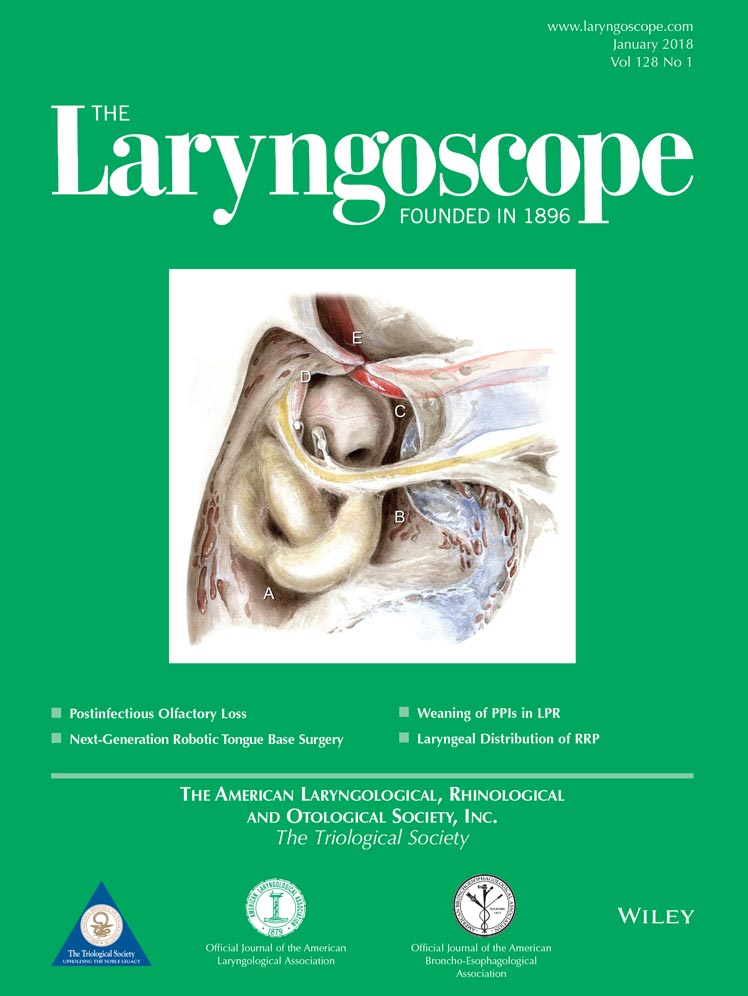Adipose-derived mesenchymal stromal cells prevented rat vocal fold scarring
This work was performed at Kyoto University, Kyoto, Japan.
Presented at the 138th Annual Meeting of the American Laryngological Association, San Diego, California, U.S.A., April 26–28, 2017.
The authors have no other funding, financial relationships, or conflicts of interest to disclose.
Abstract
Objectives/Hypothesis
This study aimed to reveal the effects of adipose-derived mesenchymal stromal cells (ASCs) on prevention of vocal fold scarring by investigating how the immediate ASCs transplantation into the injured rat vocal fold affect the levels of gene transcription and translation.
Study Design
Prospective animal experiments with controls.
Methods
ASCs harvested from green fluorescent protein transgenic rat (ASCs group) or saline (sham group) were injected into the thyroarytenoid muscle of Sprague-Dawley rats immediately after stripping the vocal fold. For histological examinations, larynges were extirpated at 3, 14, and 56 days after the injection. Quantitative real-time polymerase chain reaction (PCR) analyses were performed at 3 and 14 days after the injection.
Results
Transplanted ASCs were detected only in larynges at day 3. At days 14 and 56, histological examination showed significantly higher amounts of hyaluronic acid and lower deposition of collagen in the ASCs group compared to the sham group. Real-time PCR revealed that the ASCs group showed low expression of procollagen (Col)1a1, Col1a3, matrix metalloproteinase (Mmp)1 and Mmp8 in each time points. The ASCs group showed high expression of fibroblast growth factor (Fgf)2 and Hepatocyte growth factor (Hgf) compared to the sham group at day 14.
Conclusions
ASCs increased expressions of Fgf2 and Hgf, and suppressed excessive collagen deposition during vocal fold wound healing. Given the fact that ASCs survived no more than 14 days, ASCs were thought to induce upregulations of growth factors' genes in surrounding cells. These results suggested that ASCs have potential to prevent vocal fold scarring.
Level of Evidence
NA. Laryngoscope, 128:E33–E40, 2018




